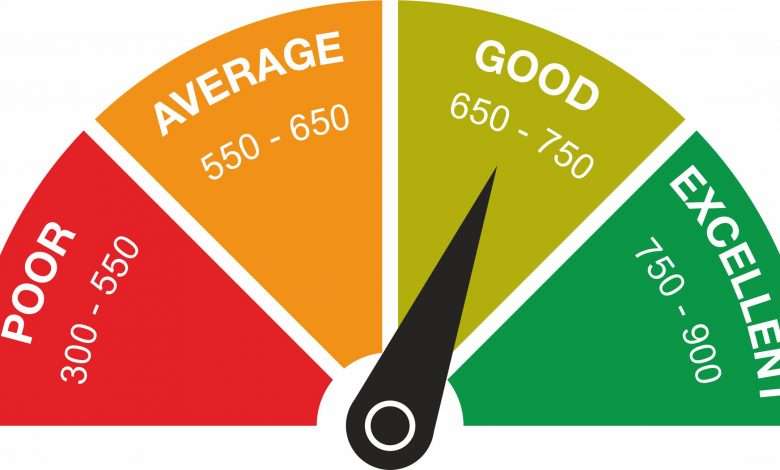Factors that impact your credit score

- how to increase CIBIL Score
The credit score decides your creditworthiness and enables a lender to decide if a loan or a credit card is available for you. A borrower’s credit history is important in assessing a credit score. According to CIBIL, credit score ranges from 300 to 900, and loan approvals are quicker for those with a score of at least 750 points.
The credit score influences your financial life directly. A higher credit score implies lower default risk and vice versa. To know more about, what is a Credit score and how you can improve it visit Oyprice.com
Contents
Don’t miss the due dates
It has a negative effect on your credit history to miss the due date of your credit card bill, not to pay equated monthly installments (EMIs) on time. It will be reflected in the report even though you have skipped a single payment or EMI. The credit report indicates the number of days after the due date for which the bill or EMI was left unpaid.
Be prompt with your payments if your credit score is poor or you don’t pay your bills on time. When you make it a routine, your credit history will take at least 6 to 8 months to change.
Nonetheless, positive thing is that for now, only credit card bills are considered in addition to loans or EMIs when reviewing credit history and other household bills are not taken into account. Credit bureaus in India have so far not taken into account mobile and other service bill payments to determine a credit score, unlike many countries in the West.
Maintain a healthy credit utilization ratio
It is possible to describe the credit utilization ratio as to how much credit from the credit limit provided is used. In percentage terms, it is measured. For eg, if your credit card limit is Rs 1 lakh and you have only used Rs 40,000, then there would be a 40 percent credit utilization ratio.
This ratio is determined on the basis of the total available credit limit on all your credit cards. Suppose you have three credit cards of Rs 50,000, Rs 1 lakh, and Rs 1.5 lakh credit limits, respectively. The cumulative amount of credit used on the three cards is Rs 90,000. In this scenario, the credit utilization ratio would be 30 percent (90,000 divided by Rs 3 lakh).
“Lenders and card issuers prefer loan applicants with credit utilization ratio of less than 40 percent of the total limit,” Binani explains. It is therefore safe to assume that the lower the loan utilization ratio, the better the creditworthiness would be. By consistently paying credit card bills and preventing excessive use of the credit limit, one can increase their credit utilization ratio.
The EMI-to-Income Ratio is another significant factor that borrowers need to remember. It is measured divided by your earnings as your monthly loan and credit card repayments. The rule of thumb says that the maximum EMI-to-income ratio is 50 percent, as lenders believe that for living expenses you would need half your income. Hrushikesh Mehta, VP, and Head, Interactive Direct to Customer, TransUnion, CIBIL, explains the EMI-to-Income ratio, saying, If your monthly income is Rs 50,000 and your total current EMI output is Rs 10,000, then your EMI-to-income ratio will be 20 percent.
Mehta stated that it will be approved on the basis of your ability to carry an additional EMI burden if you apply for an additional loan. The additional EMI a lender believes you will repay is Rs 15,000 (50 percent of Rs 50,000 – Rs 10,000). Based on this, keeping current rates in mind, the loan amount will be sanctioned. In this situation, the salary is also taken as home wage and not the gross total income.
Don’t increase your credit card limit frequently
While an expanded credit card limit gives you the flexibility to take advantage of more debt, if not used carefully, this may affect your credit score. Before sanctioning a loan, lenders try to gauge the net worth (assets minus liabilities) of a person. It is possible to see repeated changes in the credit card limit as a sign of being dependent on credit to cover expenses, something that raises a lender’s red flag.
Make sure all your old loans are ‘closed’ and not ‘settled’
In the history of credit, any default on old loans is expressed. Your credit score and credit worthiness are reduced by default. If your credit report reflects a default, you need to settle it immediately to ensure that the ‘closed’ status is displayed instead. You can also get the lender a formal closure certificate.
It may have a negative effect on your credit score to accept a one-time or partial settlement. It means that when you settle an account, the bank decides to accept a payoff sum that is smaller than the amount originally owed. As a loss is taken by the lending agency, the report represents a “settled” status. This may be perceived to be potentially harmful and detrimental to the chances of acceptance of loans. Acceptance of such deals shows your unwillingness to pay. As far as possible, borrowers should avoid settlement because these are reported to the offices, which further label such accounts in their credit report as ‘settled’, As far as possible, creditors can prevent settlement because these are posted to the bureaus that further label those accounts in their credit report as ‘settled’.
Unlike settled, a loan account’s ‘closed’ status means that the loan has been completely paid off by the borrower and helps keep the credit score stable.
Keep your credit report error-free
To ensure that it does not contain any errors that will impact your credit score, you must review your credit report periodically during the year. A credit report can contain mistakes, such as a default on your payments or a name spelling error.
Ideally, every person should periodically review his credit score, once a quarter if not once a month, to stay current and develop it with responsible credit activity over time.
If there is a mistake, you can fix it online by logging in to the website of the credit bureau or by sending the office a properly completed dispute resolution form.
Read your credit report first before applying for a loan
The credit score determines the credit risk, as described above. So, if you have a low credit score, a bank may charge you for the loan at a higher interest rate or even deny your request.
it can take up to 1 month or even more to correct a credit report. Get your credit report at least two months in advance if you are planning to apply for a loan so that you have time to make changes to your score or correction, if applicable.
Not having a credit history
For many people, this might come as a surprise, but not getting a credit history has a negative effect on your credit score. Based on your loan repayment history, credit conduct, credit usage cap, along with other variables, your credit score is calculated. If you do not have a credit card or have not taken out a loan in the past, it might be difficult for the lender to decide if you fall into the category of high risk or low risk.
You would not get a credit score if you do not have a credit history or a credit card, and you will be considered new to credit. Since the score can not be produced, lenders look at other factors such as income and jobs to assess the repayment capacity in such instances.
Having a strong credit background significantly increases the likelihood of accepting a loan. In addition, getting a good credit score will help you get cheaper loans, as many lenders have begun to accept credit scores when setting interest rates.

